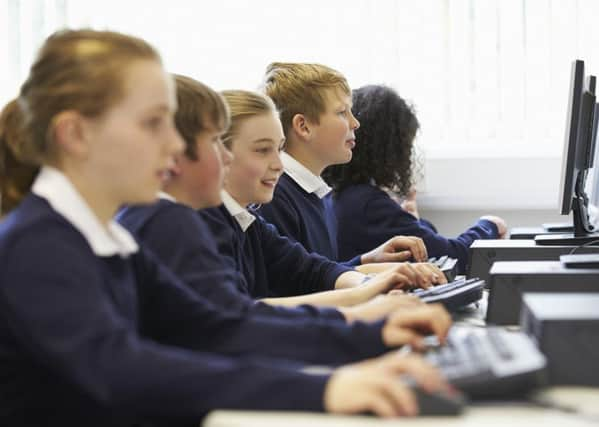Surveillance software installed on secondary school pupils' own devices


Almost three-quarters of secondary schools in the UK use surveillance software to track their pupils’ activities, according to civil liberties group Big Brother Watch.
A report found schools have spent more than £2.5m on Classroom Management Software to track students’ device use whilst learning, and rarely offer explanations in acceptable use policies.
Advertisement
Hide AdAdvertisement
Hide AdSuch software is typically used to block inappropriate websites, take remote control of a mouse and keyboard and provide live thumbnail views of device screens in the classroom. It can also be use to alert schools to signs of radicalisation or extremism, the study said.
Last year the government announced new measures to protect schoolchildren online, with all schools required to deploy “appropriate filters and monitoring systems, so that no child can access harmful content via the school’s IT systems and concerns can be spotted quickly” and teaching student how to stay safe online.
Freedom of Information requests were sent to 3,259 secondary schools in England and Wales, 1,420 of which responded. Of these, 70 per cent said they used a form of Classroom Management Software, installed on 821,386 computers, laptops, phones or tablets. Of these 819,970 belonged to the institutions, while 1,416 were pupil-owned devices.
Crossing the line
The group warned that “excessive or overzealous” filtering of the websites pupils frequent using school machines could end up restricting legitimately educational material.
Advertisement
Hide AdAdvertisement
Hide AdIt is also concerned about the possibility of schools downloading surveillance software onto the pupils’ personal devices more widely, which it claims “would be excessive and would cross the line into schools intruding into pupils’ private lives”.
It is unclear if monitoring software, such as Impero, the most commonly-used form of Classroom Management Software among the recipients, is “only activated when pupils are in class using their device to study, when pupils are on school property, or if it remains activated when pupils are off-site during evenings, weekends and school holidays”. Imperio has been contacted for comment.
Big Brother Watch asserts that no matter how well-intentioned the monitoring may be, excessive surveillance challenges Article 8 of the Human Rights Act 1998 – the right to a private family life.